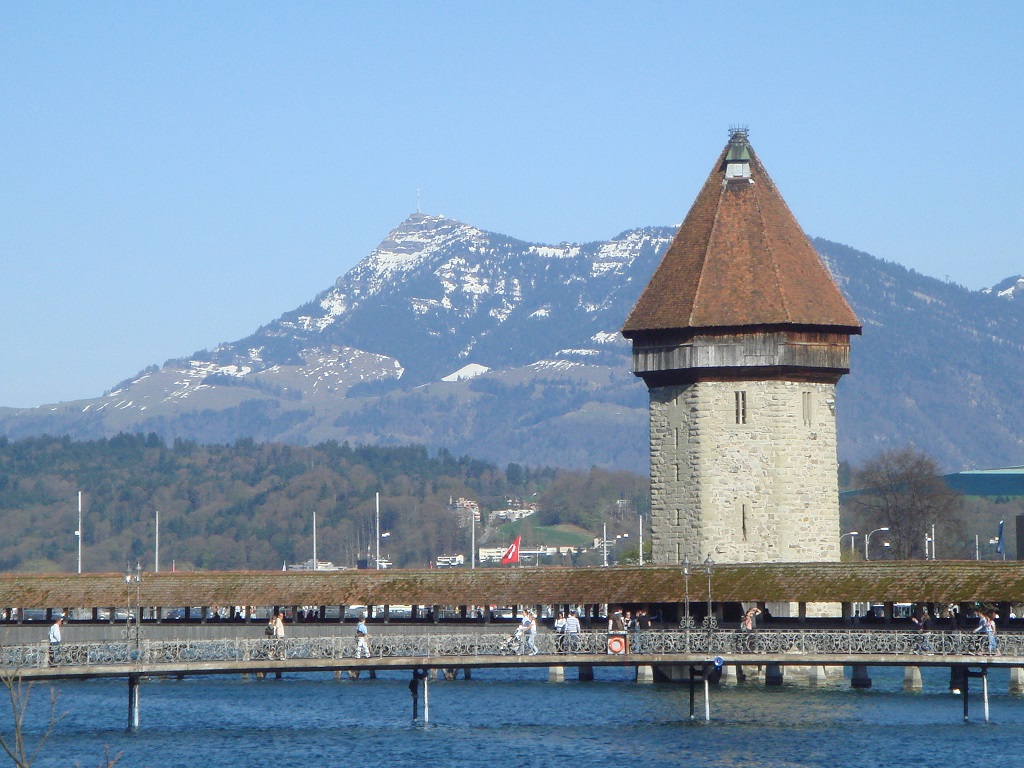Ballenberg Open Air Museum - a day trip
- Travelogue from a day trip to the Ballenberg Open Air Museum near Brienz in Canton Berne, Switzerland
Switzerland - sacred destinations
- Nine of the finest churchs, cathedrals and monastries in Switzerland
Lucerne - interior of the Jesuit Church
- Baroque interior of the Jesuit Church in Lucerne
Switzerland - Eiger, Mönch and Jungfrau
- The Eiger, Mönch and Jungfrau seen from Bergrestaurant Harder Kulm
Lucerne - 7 things not to miss
- What not to miss in Lucerne
Lucerne - getting around
- How to get around Lucerne in central Switzerland
Lucerne - getting there
- How to Lucerne in central Switzerland
Switzerland - places not to miss
- Sixteen places not to miss around Switzerland
Zürich - day trips out of town
- Suggested day trips and excursions from Zurich
Lucerne - Water tower and bridges
- Water tower and bridges across the River Ruess in the Luzerner Old Town
 Baroque interior of the Jesuit Church in Lucerne
Baroque interior of the Jesuit Church in Lucerne
 What not to miss in Lucerne
What not to miss in Lucerne
 Water tower and bridges across the River Ruess in the Luzerner Old Town
Water tower and bridges across the River Ruess in the Luzerner Old Town
 View of Kappelbrüke in Lucerne with the Hofkirche in the background
View of Kappelbrüke in Lucerne with the Hofkirche in the background
 Costumed knight conducting a troupe at the Luzerner Fasnacht
Costumed knight conducting a troupe at the Luzerner Fasnacht
 Fasnachtler masks on wicker baskest in Lucerne old town
Fasnachtler masks on wicker baskest in Lucerne old town
 Sunshine masks for the Luzerner Fasnacht in 2010
Sunshine masks for the Luzerner Fasnacht in 2010
 Bandleader leading his troupe through the central Altstad of Lucerne
Bandleader leading his troupe through the central Altstad of Lucerne